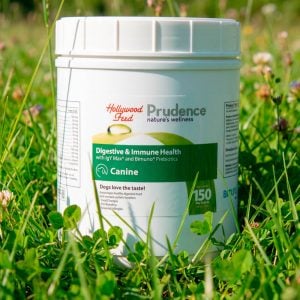When Does a Dog Need to Gain Weight?
Just like weight loss, healthy weight gain in dogs should be approached with care. A dog may need to gain weight due to:
-
Recent illness or surgery
-
Rescue or shelter recovery
-
High activity levels and fast metabolism
-
Picky eating or underfeeding
-
Age-related muscle loss
Underweight dogs can experience low energy, a weakened immune system, and poor coat condition. The key is to promote healthy weight gain through nutrient-dense, high-calorie foods and consistent feeding routines.
Signs Your Dog May Be Underweight

Before making diet changes, it’s important to confirm your dog is underweight. Look for:
-
Visible ribs, hips, or spine
-
Lack of fat over the ribcage
-
Low energy or lethargy
-
Dull coat or dry skin
-
Muscle loss or thinning
Always consult your veterinarian first to rule out medical causes such as parasites, diabetes, or gastrointestinal disorders.
Best Types of Food for Healthy Weight Gain in Dogs
To help your dog gain weight safely, look for high-calorie, high-protein dog foods with healthy fats. Here’s what to prioritize:
1. High-Calorie Kibble
Opt for kibble designed for active or working dogs. These formulas are typically higher in fat and protein content, offering more calories per cup.
2. Puppy or Growth Formulas
Even for adult dogs, some puppy formulas can be suitable due to their dense caloric and nutritional profiles. Look for “All Life Stages” foods approved by AAFCO.
3. Fresh or Raw Diets
Raw-coated kibble or freeze-dried raw toppers can boost caloric intake naturally while being easy to digest for some dogs.
4. Wet or Canned Food
Canned dog food is often more calorie-dense and palatable, making it ideal for dogs with smaller appetites or dental issues.
5. Meal Toppers & Supplements
Adding nutrient-rich toppers like bone broth, goat milk, or high-calorie gravies can increase appetite and caloric intake without switching the main food.
Recommended High-Calorie Dog Foods at Hollywood Feed

These premium brands offer options that support weight gain and overall health:
-
Victor Hi-Pro Plus – Packed with 30% protein and 20% fat, ideal for active or underweight dogs.
-
Farmina N&D Ancestral Grain – A balanced, energy-rich formula for dogs needing extra calories.
-
Orijen Original – Biologically appropriate with up to 85% animal ingredients.
-
Stella & Chewy’s Raw-Coated Kibble – High protein, enhanced with raw nutrition and excellent for picky eaters.
-
NutriSource Performance – Offers high digestibility and dense calorie content for weight support.
Feeding Tips to Promote Healthy Weight Gain
-
Feed smaller meals more frequently (3–4 times a day) to increase intake without overwhelming digestion.
-
Warm the food slightly to enhance aroma and entice picky eaters.
-
Incorporate healthy fats like salmon oil, flaxseed oil, or coconut oil in moderation.
-
Avoid empty calories—treats and table scraps may add calories but lack balanced nutrition.
-
Monitor progress weekly and adjust portions based on results.
Recap: Best Foods for Healthy Weight Gain in Dogs

-
Choose high-calorie, high-protein dog food.
-
Use wet food, raw toppers, or puppy formulas when appropriate.
-
Consider trusted brands like Victor, Orijen, Stella & Chewy’s, Farmina, and NutriSource.
-
Feed smaller meals more often and enhance with calorie-dense toppers.
-
Always consult your vet to ensure the weight gain plan fits your dog’s health status.
FAQs About Dog Healthy Weight Gain
Q: How can I tell if my dog is underweight?
A: Signs include visible ribs or bones, low energy, and muscle loss. A vet can help confirm with a body condition score.
Q: Is it safe to feed my dog more fat to gain weight?
A: Yes, but in moderation. Use healthy fats like fish oil or coconut oil, and choose high-fat foods from quality sources.
Q: How long does it take for a dog to gain weight?
A: It varies. Most dogs gain weight gradually over a few weeks to months. Aim for slow, consistent progress.
Q: Can I give my dog human food to help them gain weight?
A: Stick to pet-safe, nutritious foods. Avoid processed human foods—these can cause more harm than good.
Q: Should I switch my dog to puppy food for weight gain?
A: Some puppy foods are suitable, especially “All Life Stages” formulas, but ask your vet to ensure it’s the right choice.
Need help choosing the best weight gain food for your dog? Visit your nearest Hollywood Feed or shop online to explore our selection of high-calorie, nutritious dog foods designed to support healthy weight gain and overall vitality.
Check out our blog for more on Health & Nutrition for your pets.








